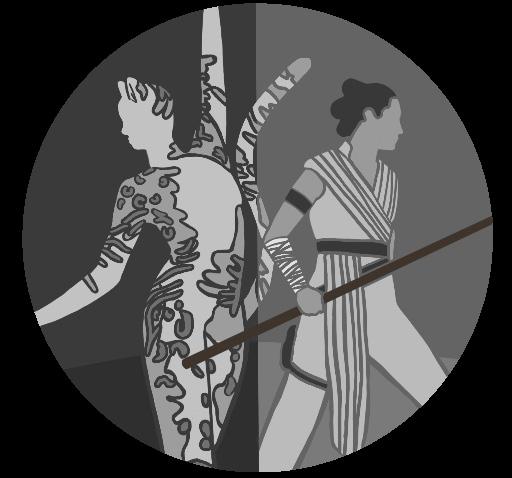
7 minute read
To charge (the holder of a public ofce) with misconduct
The Merionite Official newspaper of Lower Merion High School since 1929 issuu.com/merionite Columbia Scholastic Press Assocation Silver Crown 2013
Editors-in-Chief Samantha Anderer ’20 Izzy Bruckman ’20
Advertisement
Managing Editor Sophie Yang ’20
News Editors Elliot Ginzburg ’21 Haley Morgenstern ’20, Dhaval Sharma ’21
Opinions Editors Melissa Bell ’20 Emily Shang ’21 Jonathan Sommer ’21
Features Editors Emma Becker ’20 Maya Christianson ’21 Ziphron Russel ’20
Arts & Entertainment Editors Noa Cutler ’22 Sophie Meyer ’20 Sydney Zellinger ’21
Sports Editors Phillip Gao ’22 Kyle Patlove ’20 Spencer Rosenbaum ’22
Copy Editors Victoria Bermudez ’22 Jonathan Xu ’22
Senior Design Editor Christopher de Santis ’20
Graphics Editor Cate Roser ’21
Source Confrmation Editor Ike Mittman ’22
Web Editor Eugenia Feng ’20
Business Manager Eric Bing ’20
Assistant Business Editors Caryl Shepard ’22 Claire Sun ’21
Staf and Business Advisor Charles Henneberry
The editors believe all facts presented in the newspaper to be accurate. All articles have gone through an intensive, independent fact-checking process to minimize factual errors. The paper acknowledges that mistakes are possible and welcomes questions as to accuracy. Inquiries regarding accuracy should be directed to the editors of the paper. Editors can be contacted via e-mail at merionite@gmail.com or in Room 200A. To represent all viewpoints in the school community, The Merionite welcomes all letters to the editor. Letters can be sent via e-mail or dropped off outside the Merionite office. The Merionite reserves the right to edit letters to the editor for length or clarity.
Meaningful course selection
As the PowerSchool Portal for class registration opens yet again, you’ll find yourself being asked for your course preference during class and consulted by friends torn between two classes for their last elective spot. With the pressure of your friends’ schedules chockfull of AP classes, your teachers’ hopeful recommendations reflecting their high expectations of you, the pressure of parents and guardians, and the wide range of interesting classes offered at LM, it’s not only hard to decide what courses to take, but also to distinguish whether or not you’re requesting a class for the right reasons. Often, LM students flock to courses that have previosly attracted their peers, making the popular courses in higher and higher demand while the unpopular courses are scarcely filled. In other instances, stu dents will choose the classes that they believe will look most impressive on a college application, increasing their workload and stress for no fulfilling reason. On the other side of the spectrum, some simply try to make their schedules as easy as possible. The college application review process involves hundreds of thousands of applications where students take a wide variety of courses they be lieve will look impressive. Regardless of whether the admissions officers will take a quick skim of your transcript or do significant deep reading, this should not warrant the excessive stress LM students place on themselves from having significant work from a subject they may not care about. Students should base their course choices on their current passions in order to allivate unnecessary work and stress and further thier knowledge in a niche field. Though it’s difficult for high school students to think much further into the future than college, LM students should begin to consider their careers and lifelong passions when picking their courses. Although this in no way entails LM students setting their career goals in stone, LM students should begin to explore courses and accompanying career fields though course selection. We must remember how lucky we are to go to a school with such unique opportunities for courses, and make the best of it. High school provides an excellent opportunity to find what you’re most passionate about with little consequences, so take advantage.
Unsigned editorials reflect the general opinion of the staff and not the opinion of any single editor.
Articles and letters featured in the Opinions section reflect the viewpoints of individual contributors and not necessarily those of The Merionite editorial staff.
Good intentions, poor execution
Jacqueline Munis ’21
Next year, LM is introducing a myriad of new English courses for juniors and se niors. These courses intend to allow students to explore diferent and more specific facets of literature and writing. The most intriguing, yet controversial new class is the Voices in African American Literature course. The course is designed to create a space for students to learn, study, and discuss the experienc es of people of color in the United States through the lens of literature. Though the intentions of this course are pure, this course will actually be counterproductive to its goal. After forty years of sever al black American writers’ works like those of Maya Angelou, Alice Walker, and Richard Wright having been embedded in mainstream culture, our district is fnally taking the major steps to incorporate their perspectives throughout the high school curricu lum. Currently, many English courses, especially underclassmen courses, hardly incorporate the works of authors of color. Besides Jhumpa Lahiri’s Interpreter of Maladies, the few novels that do deal with the experienc es of non-white Americans are still written from the perspective of white people, such as Harper Lee’s To Kill a Mockingbird and The Secret Life of Bees. When specifcal ly involving black Americans, even those written by black writers, the novels discuss a single facet of black American life: the criminal justice system. When students’ only exposure to black literature is The Other Wes Moore or Just Mercy, there’s an implication that the stories written by black authors are only worth study ing when they invoke black stereotypes. Consequently, LMSD has decided to
create this new course, perhaps to assuage the efects of their past mistakes. However, they do not have the resources to do this. LM’s English department is predominant ly white, thus this course is not practical with the current state of our staf. Even if the few teachers of color in the school were to teach this course, it would put an unjust burden on their shoulders. Those few teach ers should not be pigeon-holed into teaching a class just because they are not white, even though a white teacher would unde niably be unsuitable for teaching this class. According to the descriptions of the new English courses, the content of the Voices in African American Literature course “includes social, cultural, historical and literary contexts.” Perhaps historical and literary contexts are universal, but hav ing the social and cultural contexts of being a person of color in the United States explained by a white teacher is counter productive to the purpose of the course. Teaching this course becomes difcult when teachers have to contextualize the in tangible experiences of black Americans to LM’s mostly-white student body. Though white teachers can feel or teach some of the complexities of the black American ex perience, they will undoubtedly fall short in the context of this class. For example, Toni Morrison’s The Bluest Eye can be re latable to any teacher, but this is not the same as viscerally feeling the main char acter Pecola’s ceaseless yearning for a life made unattainable, not just by the color of her eyes or of her skin, but by institutions that perpetuate the same homogenous beauty standards. Likewise, it would be difcult for a white teacher to teach James Baldwin’s If Beale Street Could Talk, a story that relies on the deep-seated fear both main characters, Fonny and Tish, feel for themselves and their child as black Americans. The fear that a black person feels when their life is put at the mercy of a white police ofcer is not an emo tion that can go through second-hand cycles and be accurately taught to students. However, the district is not even mak ing the essential perspective of black Americans a part of the standard curric ulum, especially in freshman and sophomore English courses. Al though currently two of the four English classes available to juniors and seniors, Modern and Contem porary Literature and AP Literature, include several works by nonwhite authors, the opportunity to explore minority voices is limited outside these courses. This brings up the larger question of why LMSD has sectioned of a specifc course to study literature written by nonwhite Americans, rather than incor porating it into all English classes. Yes, there are already some books relating to the lives of people of col or. And yes, LMSD wants to add a diverse group of voices to the En glish curriculum, which is fantastic, but there are several tone-deaf ramifcations. Providing a single opportunity for students to explore the gamut of people of color’s perspectives is a disservice to all the other students who do not choose to take the class. Moreover, putting the task of sharing these perspec tives in the hands of a white teacher once again takes away voices from already suppressed groups. If LMSD wants to make real progress, then it should focus on actually making everyone, especially the twenty-one percent of students iden tifying as people of color, feel like their perspectives and experiences are worth exploring in more than one classroom setting. Imprudent eforts will not sufce. Graphic by Chris de Santis ’20/Staf










